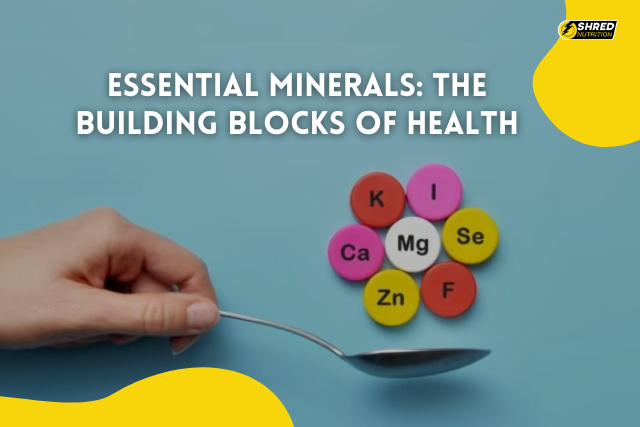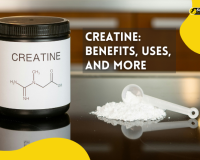
Minerals are essential nutrients required by the human body for various physiological functions. They play crucial roles in maintaining overall health, supporting growth and development, and regulating metabolic processes. Despite being needed in small quantities, minerals are indispensable for the proper functioning of cells, tissues, and organs. In this blog, we will explore the importance of minerals for our body and delve into some of the key minerals that are vital for our health.
The Importance of Minerals
Minerals are classified as micronutrients, meaning they are needed by the body in relatively small amounts compared to macronutrients like carbohydrates, proteins, and fats. However, their significance cannot be understated. Minerals are involved in a wide range of biochemical reactions, acting as cofactors for enzymes and contributing to various physiological processes. Without adequate mineral intake, the body may experience deficiencies that can lead to health problems ranging from fatigue and weakened immunity to more severe conditions such as osteoporosis and anemia.
Key Minerals and Their Functions:
Calcium
Calcium is perhaps one of the most well-known minerals, primarily recognized for its role in bone health. It is essential for the formation and maintenance of strong bones and teeth. Apart from skeletal health, calcium is also involved in muscle contraction, nerve function, and blood clotting. Adequate calcium intake is particularly crucial during childhood and adolescence when bone growth is at its peak, as well as during pregnancy and lactation.
Iron
Iron plays a vital role in the transport of oxygen throughout the body as a component of hemoglobin, the protein in red blood cells responsible for oxygen binding and delivery. Iron deficiency can lead to anemia, characterized by fatigue, weakness, and impaired cognitive function. Iron is found in two forms: heme iron, derived from animal sources, and non-heme iron, found in plant-based foods. While heme iron is more readily absorbed by the body, both forms contribute to overall iron intake.
Magnesium
Magnesium is involved in over 300 enzymatic reactions within the body, including energy production, protein synthesis, and muscle function. It plays a role in regulating blood pressure, maintaining heart health, and supporting bone density. Adequate magnesium intake has been associated with a reduced risk of conditions such as type 2 diabetes, hypertension, and migraine headaches.
Potassium
Potassium is an electrolyte that helps regulate fluid balance, nerve function, and muscle contractions, including the beating of the heart. It works in tandem with sodium to maintain proper fluid balance and blood pressure. Diets rich in potassium, such as those abundant in fruits, vegetables, and legumes, are associated with a lower risk of stroke, heart disease, and kidney stones.
Zinc
Zinc is involved in numerous cellular processes, including immune function, DNA synthesis, and wound healing. It acts as a cofactor for enzymes involved in antioxidant defense and plays a role in the sense of taste and smell. Zinc deficiency can impair immune function, leading to increased susceptibility to infections, delayed wound healing, and growth retardation in children.
Iodine
Iodine is essential for the synthesis of thyroid hormones, which regulate metabolism, growth, and development. Iodine deficiency can result in thyroid disorders, including goiter (enlargement of the thyroid gland) and hypothyroidism. Iodized salt and seafood are common dietary sources of iodine, although availability may vary depending on geographical location.
Selenium
Selenium is a trace mineral with antioxidant properties, helping protect cells from oxidative damage. It is integral to the functioning of thyroid hormones and plays a role in immune function and reproductive health. Selenium deficiency has been linked to increased risk of certain cancers, impaired immune function, and thyroid disorders.
Phosphorus
Phosphorus is a component of bones and teeth, playing a structural role in their formation and maintenance. It is involved in energy metabolism, cellular signaling, and the synthesis of DNA and RNA. Phosphorus works in conjunction with calcium to maintain bone health and proper muscle function.
Also Read: Science of Hydration: How Much Water to Drink in a Day
Addressing Mineral Deficiencies
Despite the importance of minerals, deficiencies can occur due to inadequate intake, poor absorption, or increased requirements. Populations at risk of mineral deficiencies include infants, children, pregnant women, the elderly, and individuals with certain medical conditions or dietary restrictions.
To address mineral deficiencies, it is essential to consume a balanced diet rich in nutrient-dense foods. Incorporating a variety of fruits, vegetables, whole grains, lean proteins, dairy or dairy alternatives, nuts, and seeds can help ensure adequate mineral intake. In some cases, dietary supplements may be recommended under the guidance of a healthcare professional, especially for individuals with specific needs or dietary limitations.
Conclusion
Minerals are indispensable for maintaining optimal health and well-being. From supporting bone health and immune function to regulating metabolism and cellular processes, minerals play diverse and essential roles in the human body. By prioritizing nutrient-rich foods and maintaining a balanced diet, individuals can meet their mineral requirements and promote overall health and vitality. Remember, when it comes to minerals, every little bit counts in building a foundation for a healthy life.






